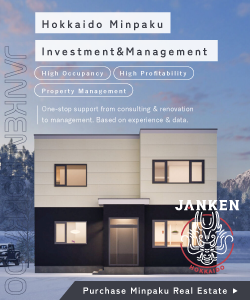Is Subleasing in Real Estate Risky? Explaining the Pros and Cons
2024.04.26

Contents
What is Subleasing?
Subleasing is a contractual arrangement where a property management company acts as an intermediary between the property owner and the tenant.
To explain simply:
- The property owner (landlord) leases an entire apartment building to a property management company.
- The property management company then rents out individual apartments to tenants.
- Tenants pay their rent to the property management company.
- The property management company deducts management fees and other charges from the rent as a commission.
- The owner, having leased out the entire building, receives a consistent income from the property management company regardless of the number of vacancies.
This arrangement involves two separate contracts: one between the owner and the property management company, and another between the property management company and the tenants. Typically, “sublease” refers specifically to the latter contract, but it is commonly used to describe the entire arrangement as outlined above.
Is it a risky contract method?
Now, regarding subleasing, some who are involved or interested in real estate investment might perceive it as “risky.”Indeed, searching for “sublease” online may yield suggestions such as “sublease scams” or “sublease disadvantages,” suggesting a generally cautious attitude towards this arrangement.
Knowledge is essential to determine whether it is risky
It’s true that subleasing requires careful consideration as it has been associated with an increasing number of disputes. Recently, these concerns have escalated to a national level, prompting legislative actions. In 2020, a new law pertaining to the contract between owners and property management companies (the Master Lease) was enacted, known as the “New Sublease Law.”
To decide whether “this property management company is trustworthy” or “whether this contract content is suspicious,” it’s crucial to have a good understanding of subleasing. The following sections will focus on the contractual precautions and the pros and cons of subleasing, primarily from the owner’s perspective.
Essential Information Before Entering into a Sublease Agreement
Firstly, it’s crucial to understand certain aspects of subleasing before getting involved in such contracts. With the right knowledge, you can avoid the majority of potential conflicts.
Property management companies often have the upper hand, not the owners.
You might think, “I’m the one leasing the property, so shouldn’t my decisions hold more weight?”
However, in subleasing, it’s common for owners to find themselves in a weaker position.
When disputes arise, owners frequently have little choice but to accept unfavorable outcomes. Although the infamous “Squash no Carriage” incident eventually favored the property owners, it is an exception rather than the rule. This is because subleasing is considered a form of investment, and the outcome of an investment typically falls under the investor’s responsibility.
Rent is periodically reviewed.
In a sublease, the property management company pays the owner a rental fee, which is typically 80-90% of the total rent collected during full occupancy.
However, this guaranteed rent is subject to regular reviews based on factors such as the property’s age and its current market appeal.
Owners should ensure the rent guaranteed by the management company is fair by:
・Researching the vacancy rates of nearby properties.
・Checking the local rental market rates.
Owners may not receive rent during the initial vacancy period or after tenant departures.
Sublease agreements often include an “exemption period,” which means the property management company isn’t required to pay rent to the owner during initial vacancies following construction or after tenants move out. This period can vary, but it typically ranges from one to six months.
It’s important for owners to:
・Understand how quickly the management company can fill vacancies.
・Review the measures the company takes to find new tenants.
Pay attention to costs beyond the rent.
Running an apartment involves more than just collecting rent.
Costs such as advertising for new tenants, restoration after tenants leave, and periodic renovations are inevitable.
It’s crucial to clarify who will bear these costs—the owner or the management company.
Consider whether the cost-sharing arrangement is fair and whether provisions for unexpected expenses are adequate to prevent future disputes.
By understanding these key aspects and preparing accordingly, property owners can negotiate from a position of strength and avoid unexpected burdens.
Maximizing Investment Returns with Subleasing—What are the Benefits?
Having covered the intricacies and potential pitfalls of subleasing, it might seem to some that it’s more trouble than it’s worth. However, with proper contract review and appropriate management, subleasing can indeed offer significant advantages.
Here, we’ll detail the specific benefits that make subleasing a recommended option for certain investment goals.
Stable Rental Income
As previously mentioned, property owners receive a guaranteed rent from the property management company, usually amounting to 80-90% of the full rental income potential, regardless of actual tenancy.
This guaranteed rent does not fluctuate unless renegotiated with the management company.
This arrangement nearly eliminates the risk of vacancies, a significant concern in rental real estate investment, ensuring a stable income stream for the owner. Subleasing offers a more predictable financial future, making it an attractive option for those seeking stable investment returns.
Ease of Property Management
Subleasing means the property owner rents out the entire building to a property management company. The company then takes on all operational responsibilities, including tenant agreements and marketing for new tenants, reducing the owner’s workload to virtually nothing.
This can be particularly appealing for those interested in real estate investment who might not have the time or desire to manage the day-to-day operations of property rental.
Effective for Inheritance Tax Strategies
Real estate investment is often used as a strategy for managing inheritance taxes. The rationale is that inheriting real estate can be more tax-efficient than inheriting cash because the taxable value of real estate can be significantly lower than its market value.
For example:
・$500,000 in cash would be taxed at $500,000.
・Land worth $500,000 might be taxed at 80% of its value, i.e., $400,000.
・Buildings worth $500,000 might be taxed at 70% of their value, i.e., $350,000.
Furthermore, real estate that is rented out can have its taxable value further reduced based on the percentage it is leased. Under a master lease, a property is considered fully rented in tax evaluations, regardless of actual vacancy rates, which can minimize the taxable value substantially.
For those considering real estate as a part of inheritance tax planning, subleasing can be a particularly effective strategy, offering benefits that can significantly enhance the financial outcome of inheritance.
These aspects highlight why subleasing can be a sound strategy for real estate investors, particularly those seeking stability and efficiency in their investments.
The Disadvantages of Subleasing Compared to Other Real Estate Contracts
While subleasing can reduce an owner’s burden and secure steady income, it comes with certain drawbacks.
Lower Profit Margins
The amount an owner receives under a master lease with a property management company typically ranges from 80% to 90% of the potential full rental income. By choosing subleasing, owners effectively cap their maximum earnings potential.
・Properties with nearly 100% occupancy
・Highly desirable locations such as near transit stations
・Newly constructed properties expected to attract numerous tenants
For such properties, the necessity to mitigate vacancy risks through subleasing is lower. In fact, opting for subleasing could lead to a permanent decrease in revenue based on the owner’s decision. It’s crucial to thoroughly review the current vacancy rates, future income projections, local development, and occupancy rates of nearby properties before considering subleasing.
Difficulty in Contract Termination
As discussed earlier, in a master lease, the tenant is the property management company, which typically has more rights under the law than the landlord (owner). Even if an owner decides that ending the sublease would be more profitable, terminating the agreement smoothly can be challenging.
Always verify the termination conditions within the contract.
Increased Risk of Tenant Issues
In subleasing, the property management company handles all aspects of apartment operation, leaving the owner without control over tenant selection.
For instance, if a profit-driven management company handles the operations, it might admit tenants who do not adhere to apartment rules, leading to potential complaints from other residents and damage to the property.
Issues among residents can significantly decrease the property’s attractiveness, leading to higher vacancy rates and increased advertising costs. Be aware of the potential for unnecessary stress and expenses.
Consider Limited Management Delegation Instead
If the benefits of subleasing do not seem substantial for a particular property, opting for a standard management contract might be advisable. By delegating only certain tasks to a property management company instead of comprehensive control, the owner can reduce operational burdens while maintaining higher profit margins compared to full subleasing.
Understanding the Pros and Cons Before Considering Subleasing
Subleasing can be risky if entered into without sufficient knowledge, as property management companies can potentially manipulate terms such as guaranteed rent and exemption periods to their advantage. Real estate investment offers many alternatives to subleasing, so it’s crucial to compare different contract types thoroughly in such situations.
After understanding both the advantages and disadvantages, carefully consider whether subleasing is the right choice for you.
Investing in Minpaku in Hokkaido with JANKEN

JANKEN specializes in minpaku (short-term rental) investments. Leveraging our expertise and local insights not commonly found online, we support investors through all phases of property acquisition and minpaku management.
If you are considering minpaku investment in Hokkaido, feel free to consult with us!


















